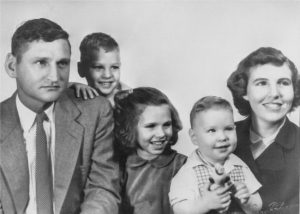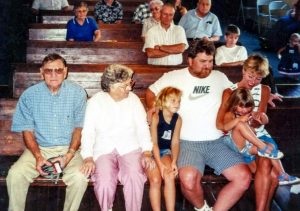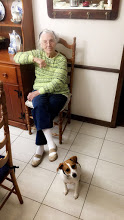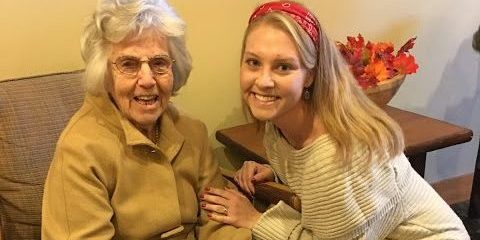True Unequivocal Love
By Skylar Edwards
My grandparents were both strong-willed, young adults, who fell in love in the aftermath of WWII. My grandfather was a talented carpenter and electrician, who served his country in the South Pacific on the USS APA 168 Gage. He returned from the navy and met my grandmother who worked night shifts at a telephone company and funded her own education. They built a good life together in Arkansas, raising five rowdy children in one Christian household.


Lahoma and Gerald Edwards grew old together in a large, white house, enclosed by great, dark trees and a small fishing pond. I spent most of my childhood in the country, with the freedom to explore beyond my backyard. My grandmother would take my hand and together we would pick blueberries and day lilies for the table, while my grandfather quoted scripture and worked tirelessly in the garden, or kitchen. Today, it is his sourdough recipe that I cherish.
Growing up, I was wrapped in my grandparents’ true and unequivocal love. I learned from their words of worship, wisdom and grace, and found strength in their teachings. When it stormed, my grandmother was there to hold me close, and comfort me with stories of angels bowling in heaven.
Later in life, my grandmother was diagnosed with dementia. Still young, I didn’t notice, or fully understand, the changes that surely terrified my grandfather. With a heavy heart, he took on the difficult role of husband and caregiver. When my grandfather passed away, my father and his siblings came together to care for my grandmother.
She continues to enjoy a peaceful quality of life in the country, and has had a couple of caregivers over the years. Each fostered long lasting relationships with my grandmother, beyond their roles as medical professionals. Before graduate school, I spent a wonderful summer in the country with my grandmother. And although her dementia had spread considerably, we enjoyed many enrichment activities together just like we used to. We walked through the garden and arranged flowers for the kitchen, with the dogs trailing close behind. And although the dementia caused lethargy, she always perked up to the sweet smell of baking bread, gospel music and old photographs. I still remember her laugh and mine, every time I turned around, unsuspecting, to find she had slipped yet another cookie to the dog under the table.

That summer together, we found non-verbal ways to communicate and capture precious moments through art, music and nature. And it is because of this experience with my grandmother, that I went on to study art education and therapeutic techniques for people living with dementia.


